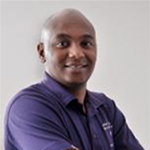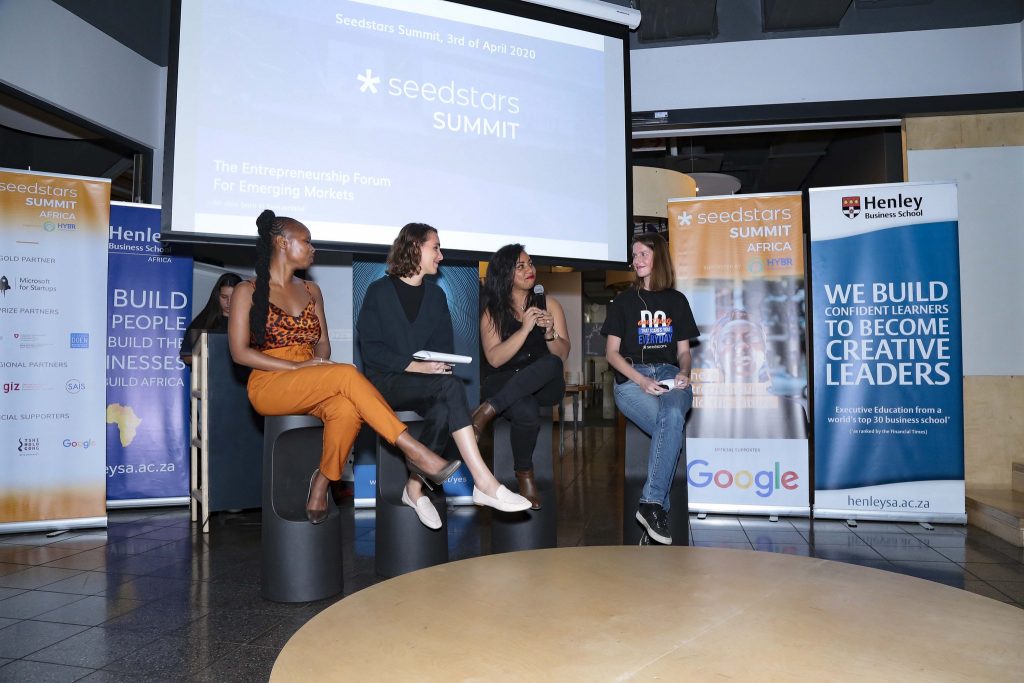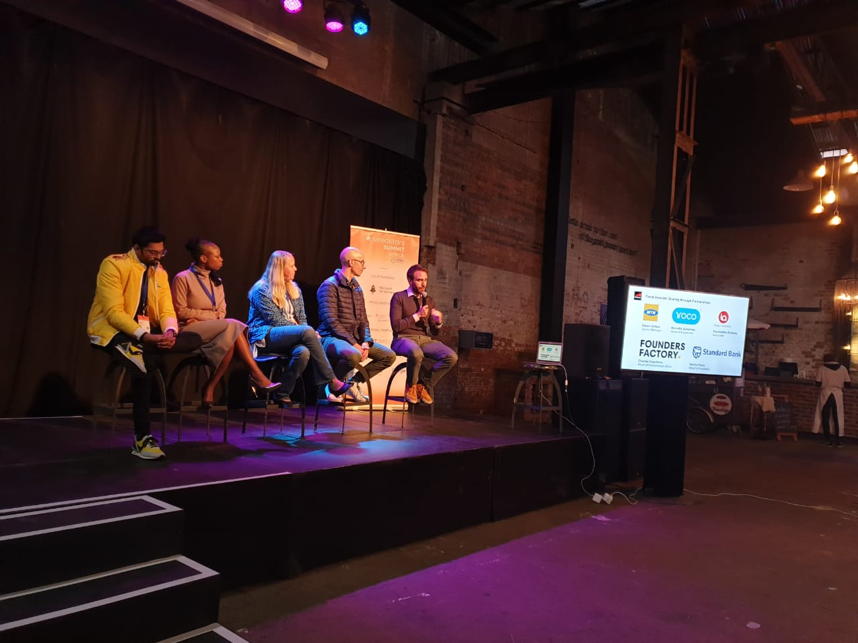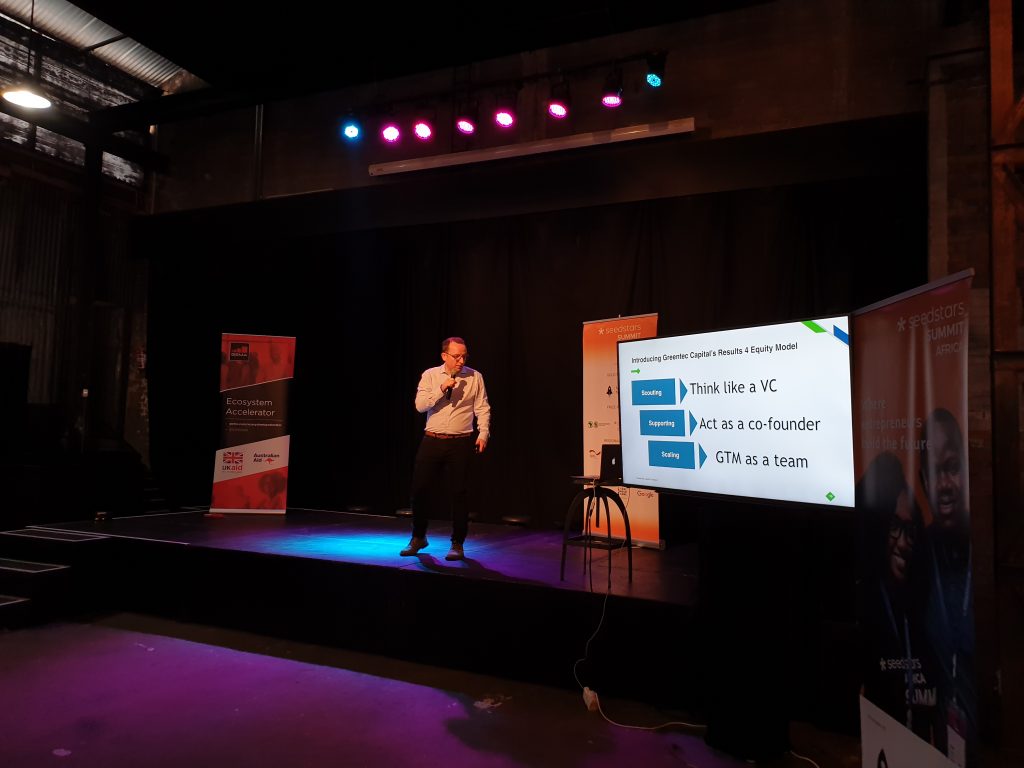Bigger, bolder and better – The Africa Start-up Summit by Seedstars
The GSMA Ecosystem Accelerator team was invited to attend the annual Africa Seedstars Summit in Johannesburg on 4 and 5 December 2019. The event brought together various stakeholders including start-ups, investors, mentors, mobile operators and other corporate companies from all over Africa. The event also included industry-focused workshops and panel discussions, keynotes from experts and successful entrepreneurs from emerging markets and the announcement of eleven regional winners, who will be invited to the Global Summit in April next year. Here are key our takeaways.
Balancing the gender equation
The 2019 Africa Seedstars Summit made gender parity a key focus. For the first time ever, more than 40 per cent of the over 30 start-ups represented at the event were female-founded. Furthermore, 100 per cent of the jury panel at the competition was drawn from a pool of leading women in the investment, entrepreneurship and donor communities. The mobile gender gap in access and use of technologies is well documented by the GSMA Connected Women team and this Ecosystem Accelerator blog reflects on female entrepreneurship. Despite the fact that Sub-Saharan Africa trails the rest of the world in gender gap metrics, we have witnessed some progress in the last few years.
Women-led ventures are growing from strength to strength across the African continent, and more products and services are now built with gender inclusiveness in mind, which is a major step in reducing previous male-dominated biases across the product development and rollout stages. Female focused investor networks – like Rising Tide Africa – are tackling gender disparity and providing funding solutions to female founders. Beyond inclusive entrepreneurship, policies and regulations that enable women to take up and remain engaged in STEM careers are critical in closing the gender gap. The OECD Development Centre’s Social Institutions and Gender Index (SIGI) flag Mozambique and Rwanda as markets with key initiatives geared towards promoting gender equality across the spectrum. Both countries could serve as a benchmark template for policy makers and governments in the region.
More markets represented by hyperlocal teams
Beyond the key hotspot markets in the continent, this year’s event featured start-ups from a diverse pool of 30 countries including Mozambique, Angola, Namibia, Cape Verde, Botswana, Ivory Coast, Gambia and Mali. Here are a few examples of start-ups that were represented at the event:
- Oko Finance (Mali): Offers mobile-based index insurance products to smallholder farmers that facilitate access to affordable loans, weather alerts and tips;
- Nadji.Bi Gambia Ltd (Gambia): Provides solar solutions ranging from solar home systems and solar water pumps to solar mills across West Africa;
- Eco-Warriors (Mauritius): Supplies a gamification tool for educating children on the environmental actions needed while providing a monthly CO2 emission reports; and
- AfrikaMart (Senegal): Aims to become the largest quality fresh food supplier in Africa without owning any farmland.
Local challenges are best solved by local teams. The diversity of start-ups at this Seedstars event demonstrated the importance of teams with deep local understanding paired with networks that span the global entrepreneurship ecosystem. Within the hyperlocal mix of resources, partnerships, both global and local, play a pivotal role in driving scale.
Industry partnerships facilitate scale
During the GSMA workshop, entitled ‘Start-up Corporate Partnerships’, we invited Standard Bank Mozambique, MTN, Founders Factory, Yoco, GreenTec Capital and Impact Amplifier to share best practices on how to build partnerships for scale. A start-up by definition aims to solve a problem by providing a service or product, often in a simpler way, despite having frequently limited resources. In order to improve the odds of success, resources have to be allocated to areas to yield maximum impact. One way for a start-up to increase their resources is to enter into ‘win-win’ partnerships with leading ecosystem players such as other start-ups, large corporates, investors and governments.
Throughout the workshop several key points were discussed to facilitate scaling up through collaborations. First, understanding value proposition for both parties is key to building a successful partnership. Partnerships happen where synergies exist and have been articulated. For instance, if you are a start-up looking to partner with MTN, your solution could unlock revenues in a new vertical for the mobile operator, whilst also helping MTN to reduce churn and increase the rate of customer retention. Secondly, pilot projects are a great way to demonstrate value in a low risk environment. Whenever possible, propose a testing phase for both parties to stress-test assumptions and improve product fit. Finally, whilst funding is key to hacking growth, other options do exist such as co-branding, co-marketing and GreenTec Capital’s “Results4equity” model, where they support start-ups to meet predetermined metrics in exchange for equity.
In summary, the Seedstars Africa Summit provided a platform to focus on pertinent issues such as gender diversity, networking with gamechangers from Africa’s entrepreneurship scene and explore best practices for start-up-corporate partnerships.
We would like to thank the Africa team at Seedstars for organising this year’s summit and inviting GSMA Ecosystem Accelerator to this year’s event.
The Ecosystem Accelerator programme is supported by the UK Department for International Development (DFID), the Australian Government, the GSMA and its members.






